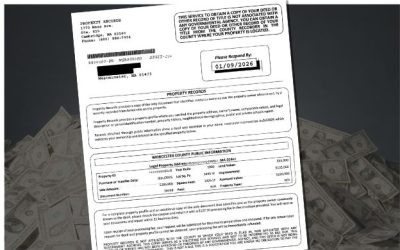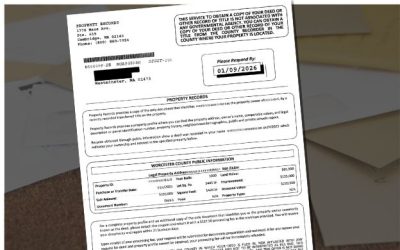Follow the Money:
How the IRS Tracks Financial Crimes Through Real EstateFrom Unreported Income to Shell Game Schemes — What IRS-CI Is Looking For
Your Closing Could Be an Audit Trigger — Here’s How the IRS Sees It
When most people think of the IRS, they imagine audits and paperwork — not criminal agents working alongside the FBI and Homeland Security. But the IRS-Criminal Investigation Division (IRS-CI) is a powerful enforcement arm of the federal government, and real estate is one of its favorite trails to follow.
From luxury home purchases with unexplained funds to “gifted” equity that isn’t reported properly, the IRS-CI routinely uncovers criminal tax activity by analyzing real estate transactions. If you think your closing statement is just a formality — think again.
Real Estate as a Laundering Tool: Clean Property, Dirty Money
One of the most common IRS-CI cases involves individuals or entities using real estate to hide the source of illicit income.
Common Red Flags:
- Homes purchased with cash not supported by reported income
- Funds layered through multiple entities or relatives
- Repetitive buying and selling at inflated or deflated prices
Learn how IRS-CI tracks financial crimes through real estate
“Gift of Equity” Deals with Missing Paper Trails
It’s common in family-to-family sales to offer a discount — a “gift of equity.” But when these transfers aren’t properly documented, they can flag problems on both income tax and gift tax returns.
Triggers Scrutiny When:
- No gift letter is included in the mortgage or closing file
- Gift exceeds the annual IRS gift exemption and is not reported via Form 709
- Property is sold well below market value without explanation
IRS explanation of gift tax rules: When does a gift of equity trigger tax obligations?
Structuring or Smurfing Through Real Estate
IRS-CI also tracks “structuring,” also known as smurfing — where large sums of cash are broken into smaller amounts to avoid bank reporting thresholds.
How it Appears in Real Estate:
- Multiple down payments from different accounts or people
- Several transfers under $10,000 leading up to a purchase
- Sudden influx of funds from unrelated sources close to closing
These patterns are especially suspicious in all-cash or entity-based purchases.
Shell Companies and Fake Deductions
If the property is being purchased or sold through an LLC or trust, the IRS wants to know who actually controls the asset — especially when tax deductions or depreciation are claimed.
Triggers Scrutiny When:
- Owner hides behind multiple corporate layers
- Rental property expenses are exaggerated or fabricated
- Pass-through income isn’t declared properly
FinCEN’s Corporate Transparency Act ties directly into this enforcement
Review new rules on beneficial ownership disclosure
What This Means for Buyers, Sellers, and Agents
Whether you’re transferring a condo to your niece or selling a vacation home at a discount, the IRS-CI may see more than you expect. And in complex deals — especially those involving cash, gifts, or multiple parties — you could easily trigger review without realizing it.
IRS-CI agents don’t conduct routine audits — they build criminal cases. Your best protection is documentation, legal accuracy, and transparency.
Don’t Let a Paper Mistake Become a Tax Investigation
At The Law Office of David R. Rocheford, Jr., P.C., we guide every transaction with tax compliance in mind. Whether you’re transferring property to family, buying with equity, or structuring a trust sale — we help you stay within IRS guidelines and out of trouble.
Providing title, escrow, closing and settlement services to clients throughout Massachusetts and New Hampshire
From Our Clients
Recent News
What Real Estate Agents Need to Know About FinCEN’s New Residential Real Estate Reporting Rule (Effective March 1, 2026)
SUMMARY: Starting March 1, 2026, FinCEN’s Residential Real Estate Rule requires a Real Estate Report for certain non-financed residential transfers where the buyer is an entity or trust (common “cash/opaque ownership” scenarios). Real estate agents do not file the...
Why New Homeowners Get Targeted After Closing
For many buyers, one of the most surprising parts of homeownership happens after the closing is complete: the sudden increase in mail related to their property. This isn’t accidental—and it isn’t unique to any one company or offer. It’s the predictable result of how...
New Homeowners Beware: “Recorded Deed” Letters That Aren’t What They Seem
Buying your first home is exciting—and it often comes with a mountain of paperwork. Unfortunately, it can also make you a target for misleading solicitations that appear official and urgent, but offer nothing you actually need.One of the most common examples we see...








